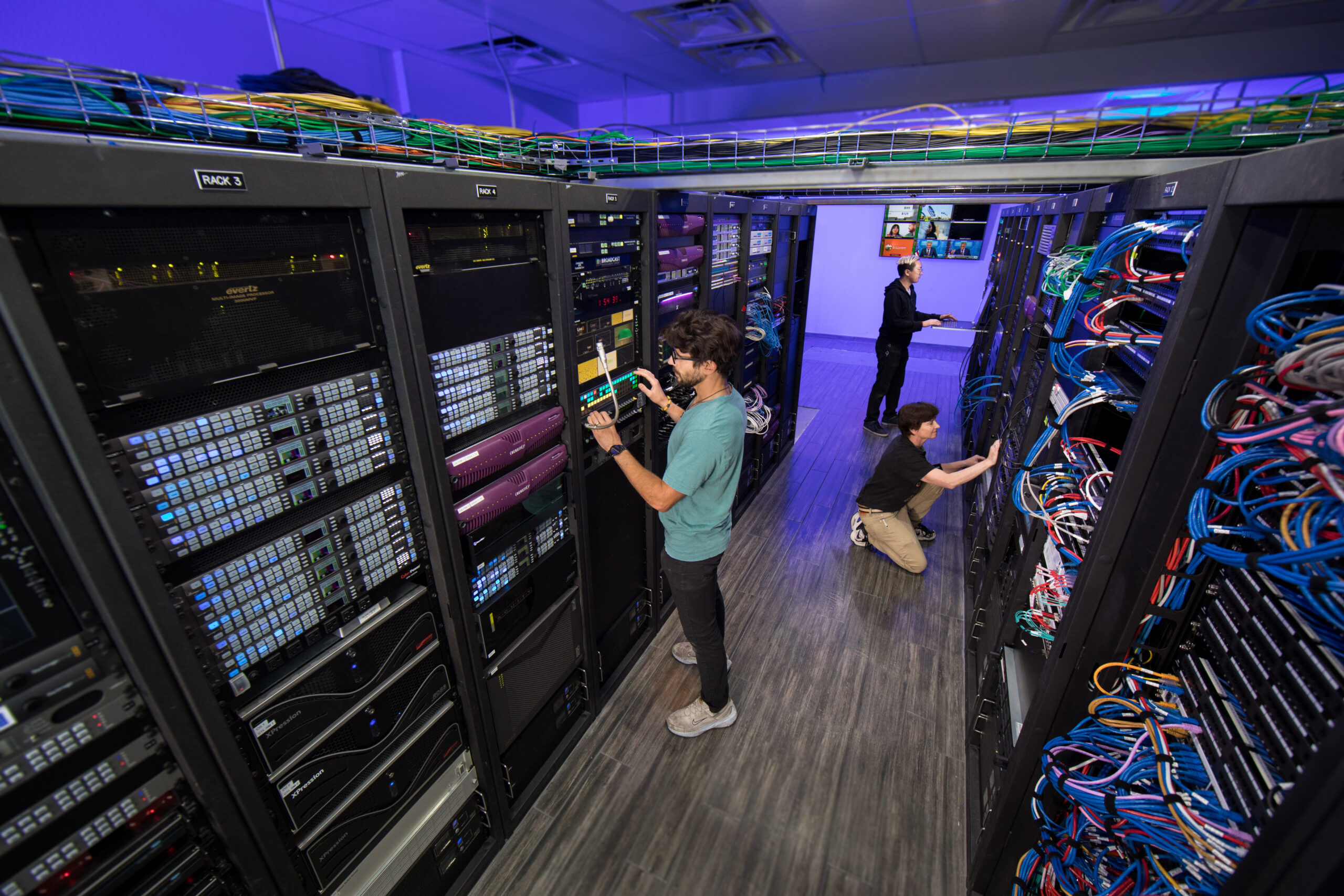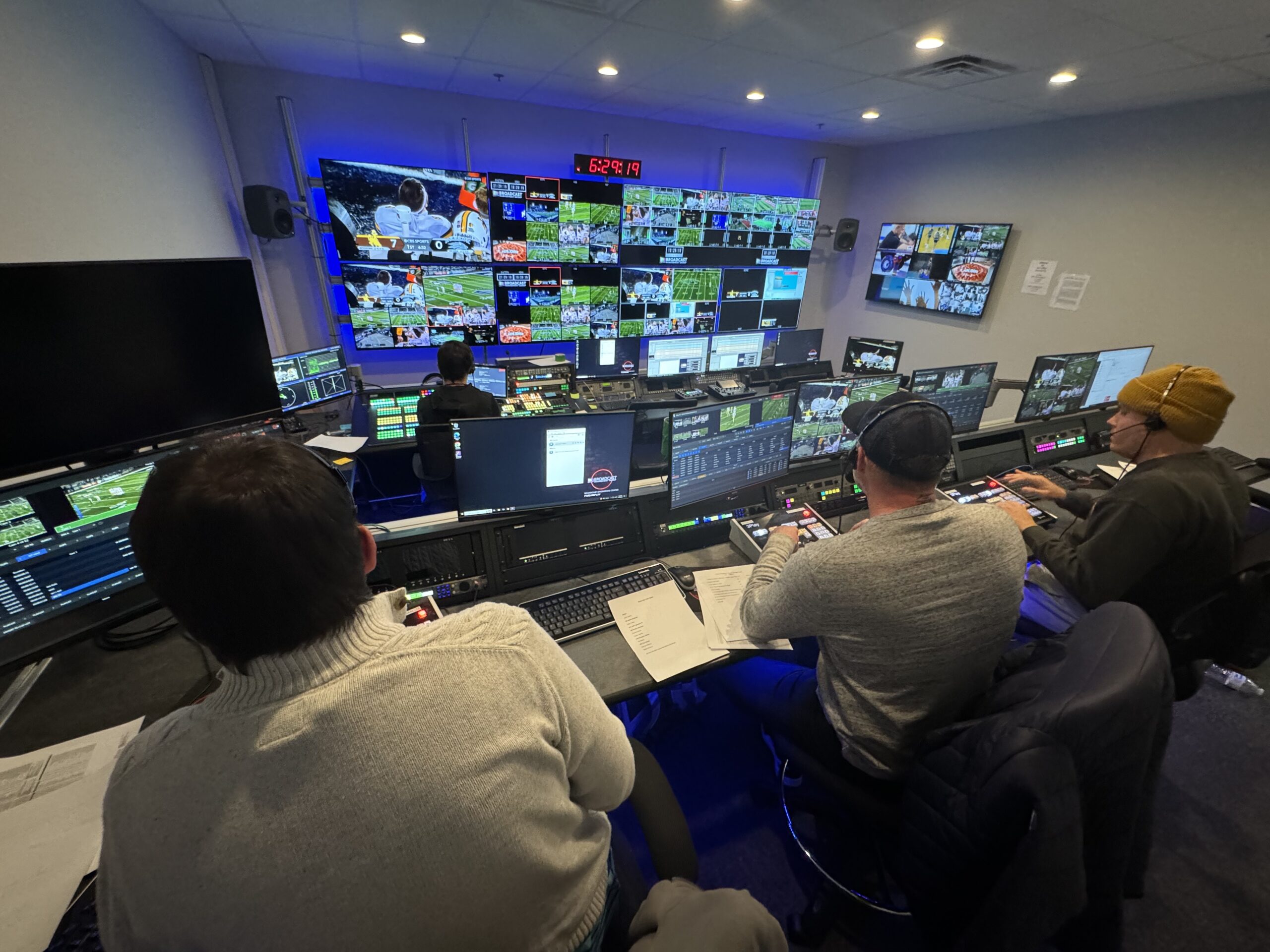BMG’s Las Vegas Tech and Production Facility Is Set To Go for Super Bowl LVIII
Private-cloud infrastructure offers access to capabilities across the country
Story Highlights
Allegiant Stadium in Las Vegas will host Super Bowl LVIII in four weeks, and Broadcast Management Group’s (BMG) Las Vegas production facilities and capabilities are ready to help out everyone from broadcasters to digital-content creators and even large brands looking to host large events that tap into the power of video.
“We have a large local presence in Las Vegas,” says BMG CEO Todd Mason. “It’s a market we know inside and out. We have tremendous connectivity and production resources that can be leveraged by any broadcaster, domestic or international.”
BMG’s facilities in Vegas house an insert studio able to go live anytime and featuring multiple PTZ cameras, prompter, lighting backdrops and virtual sets, green screens, and IFB to transmission paths (transmission options are LiveU, LTN, TVU, SRT, RTMP, ZIXI, NDI, KU, the Encompass Global Fiber Network, and a fleet of satellite trucks). Vegas is also home to multiple BMG mobile units and REMI flypacks and kits.
“We can also bring camera feeds [from Allegiant Stadium] into our broadcasting center and have game revisions done from one of our control rooms, which is a lot more cost-effective,” says Mason. “When you look at a big event like the Super Bowl, there’s just not enough space around the stadium for everything that needs to happen. Logistically, it is much easier for us to hook up our interface and bring feeds to our cloud control center.”

BMG tech centers in Las Vegas (pictured), New York, and Washington, DC, allow the company’s technical infrastructure to be shared over long distances.
According to Mason, the company is investing in master-control and media-asset-management services for its locations in Las Vegas; Washington, DC; and New York’s Times Square. BMG’s private-cloud infrastructure is also growing because, he notes, there is value to having a private-cloud ecosystem focused on production needs.
“We continue to build and expand our own cloud with our own servers and everything needed for an asset-management disaster or recovery of the network,” he explains. “We operate a number of client-owned facilities on a day-to-day basis, and those facilities are connected to our cloud.”
The goal is to give clients the ability to expand capabilities at the last moment: for example, adding in a Ross Xpression operator or a remote prompter operator. BMG’s ability to connect its facilities in Washington, Las Vegas, and New York to each other and to the cloud adds additional flexibility.
Las Vegas continues to grow in terms of big-time sports events. With the MLB’s Athletics moving to town and The Sphere an additional sports-venue option, that growth will only continue. The challenge, says Mason, is that Vegas does not have enough production personnel available for the rapidly expanding needs of professional sports, amateur sports, and live entertainment and concert shows.
“The Super Bowl puts a big demand on a town that’s not huge as it relates to production personnel,” he notes. “And the people relocating here are not relocating fast enough to keep up with demand. Having the ability to tap into a decentralized production team is a huge advantage.”
BMG’s presence in Vegas will continue to expand, he adds: “We will continue to expand the footprint of the facility itself. Specifically, our data center will keep growing, and we will support more control rooms that will be in New York or Washington, DC.”
For now, the focus is on the Big Game and serving such clients as Taco Bell, which is holding a big event on the Strip.
“It’s very exciting that the Super Bowl is in Las Vegas and our major operation there is only 10 minutes from the Strip,” says Mason. “We can provide answers to production needs with our insert studios as well as transmission and connectivity needs.”

